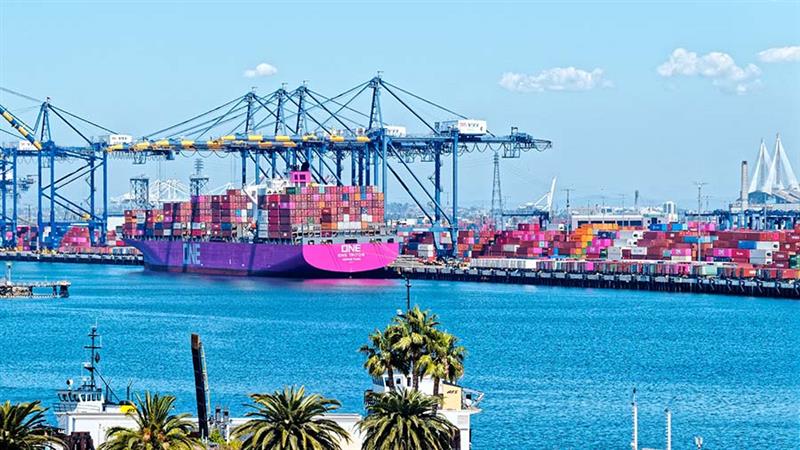China’s Film Industry to Benefit from New Support Policies, Tax Breaks
China’s film industry, like many sectors of the entertainment industry, suffered a catastrophic blow due to the COVID-19 outbreak and subsequent lockdowns since the end of January.
Movie theatres around the world have had to close down as well when public health concerns became apparent in respective countries, causing global box office revenues to record a RMB 30 billion (US$7 billion) loss by mid-March.
In China, as many as 70,000 cinemas have been shut, with distributors suspending the release of domestic and foreign blockbusters, and a further 6,600 films and TV productions coming to a halt.
Following a four-month lull, in May, cinemas were finally permitted to reopen, and business have done so by cautiously operating at less than half of the original capacity and oftentimes temporarily reducing salaries to cope with the losses.
Multi-pronged lifeline introduced for the film industry
Acknowledging the losses suffered by this industry, the Chinese government has introduced support policies in various forms to keep it afloat, including preferential tax policies, fee waivers, consumption vouchers, and special funds. We provide further details, as well as how businesses can benefit from these policies below.
Tax breaks
In May, the Ministry of Finance and State Taxation Administration announced that taxpayers in the film industry will be exempt from value-added tax (VAT) on income derived from the provision of film screening services. This is to apply retrospectively from January 1, 2020 all the way through to December 31, 2020.
Losses incurred by film companies can now be carried over an extended period of eight years, up from the previous five years, and any taxes and fees already levied for this year can be deducted or refunded in the following months.
Companies working in film production, distribution, and screening – and holding the ‘Film Projection Operation Permit’ – will be able to benefit from these policies.
However, film broadcasting platforms and networks, such as internet-based streaming services, telecommunications networks, and broadcasting networks will fall outside of the beneficiary scope of these policies.
Cultural construction fee waiver
Alongside tax breaks, the Ministry of Finance and China Film Administration have stated that businesses in the film industry are exempt from paying the usual cultural construction fee.
This will apply to businesses in Hubei retrospectively from January 1, 2020 through to December 31, 2020, while other provinces, autonomous regions and municipalities will enjoy this exemption up until August 31, 2020.
The cultural construction fee is collected by relevant tax authorities, at a rate equal to three percent rate of the turnover of recreational and advertising businesses sales.
Local government support policies rolled out
At the more local level, a series of support policies have also been issued to alleviate the losses suffered by the film industry.
For example, Beijing issued a whole host of new measures to promote the development of cultural enterprises after the COVID-19 outbreak. Within these measures were a one-time publicity and distribution subsidy for Beijing-made film makers, if the film was not released due to the pandemic, and special production subsidies for key film projects.
The Beijing Municipal Film Bureau also expedited the launch of two support funds for the Beijing Propaganda and Culture Guidance Fund (film) and the 2020 Municipal Film Special Fund, and introduced up to 30 percent rent subsidies for qualified film enterprises, to support small and medium-sized theaters that are facing difficulties due to the impact of COVID-19.
Similarly, Shanghai and Zhejiang are among other regions to have adopted measures to strengthen financial support, increase credit supply, and reduce corporate rent costs to promote the creation and resumption of production in the film industry before and after the pandemic.
Further down south, the Guangdong Film Bureau announced that it would allocate around RMB 50 million (US$14 million) in special film funds to over 1,000 theaters affected by the outbreak in Guangdong, with funds ranging from RMB 10,000 (US$1,414) to several hundreds of thousands yuan.
Film industry pivots to digital delivery model
Last year, China’s box office revenue grew by 5.4 percent totaling RMB 64 million (US$9 billion) – making it the second largest film market after the US, which made over RMB 78 million (US$11 billion) at the box office the same year. In 2020, China was forecasted to continue along the same growth trajectory, eventually surpassing the US to become the world’s largest film market.
However, COVID-19 has significantly disrupted the film industry. Similar to many other industries, such as retail, education, and healthcare – the film industry has had to find new innovative ways to deliver its services to consumers. For the entertainment industry — this has meant leveraging online social media giants in the distribution of entertainment and film content, capitalizing on the millions of people stuck at home, or choosing to remain home due to ongoing safety concerns, with often little to do for recreation.
For example, the Chinese internet company Bytedance, which owns several streaming platforms including Xigua Video and Douyin, purchased rights to distribute the film Lost in Russia after it was dropped from cinemas due to the pandemic. Chinese video streamer, iQiyi also followed suit, purchasing the rights to premiere the movie Enter the Fat Dragon, and has ambitious plans to expand overseas.
Alongside this, the National Film Administration has also actively organized high-quality film sources to enrich the supply of film networks to meet the people’s current demand for viewing movies at home.
While the shift to online delivery will take time, there are early signs that these new tactics and business models will be here to stay.
Moving forward, it is likely that more mid-budget films will be produced and distributed directly by Chinese streaming platforms, as similar companies like Netflix and Amazon Prime have done overseas. This will not only upend how audiences watch movies, but also the ways in which movies are financed and produced.
With film and TV companies having their productions disrupted due to the outbreak – and the resumption of US-based productions facing an even longer disruption – demand for fresh content produced in China will be high.
The recent supportive policies offered by the government will not only assist film companies already operating in China that were impacted by COVID-19, but also new entrants that begin operations before the end of the year.
About Us
China Briefing is written and produced by Dezan Shira & Associates. The practice assists foreign investors into China and has done so since 1992 through offices in Beijing, Tianjin, Dalian, Qingdao, Shanghai, Hangzhou, Ningbo, Suzhou, Guangzhou, Dongguan, Zhongshan, Shenzhen, and Hong Kong. Please contact the firm for assistance in China at china@dezshira.com.
We also maintain offices assisting foreign investors in Vietnam, Indonesia, Singapore, The Philippines, Malaysia, Thailand, United States, and Italy, in addition to our practices in India and Russia and our trade research facilities along the Belt & Road Initiative.
- Previous Article COVID-19 Catalyzes Commercial Use of 5G in China
- Next Article Opportunities for Foreign Investors in China’s Service Industries After COVID-19 – New Issue of China Briefing Magazine

























